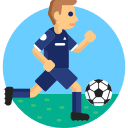Let's find the best school for your child
Please check your SMS/Email for the OTP.
Please check your SMS/Email for the OTP.


Redirecting you to our Common Admission Platform for Delhi
Thank you for sharing your details. Your enquiry is on the way to the best schools for your child.

We are processing your enquiry. Just wait a moment.




